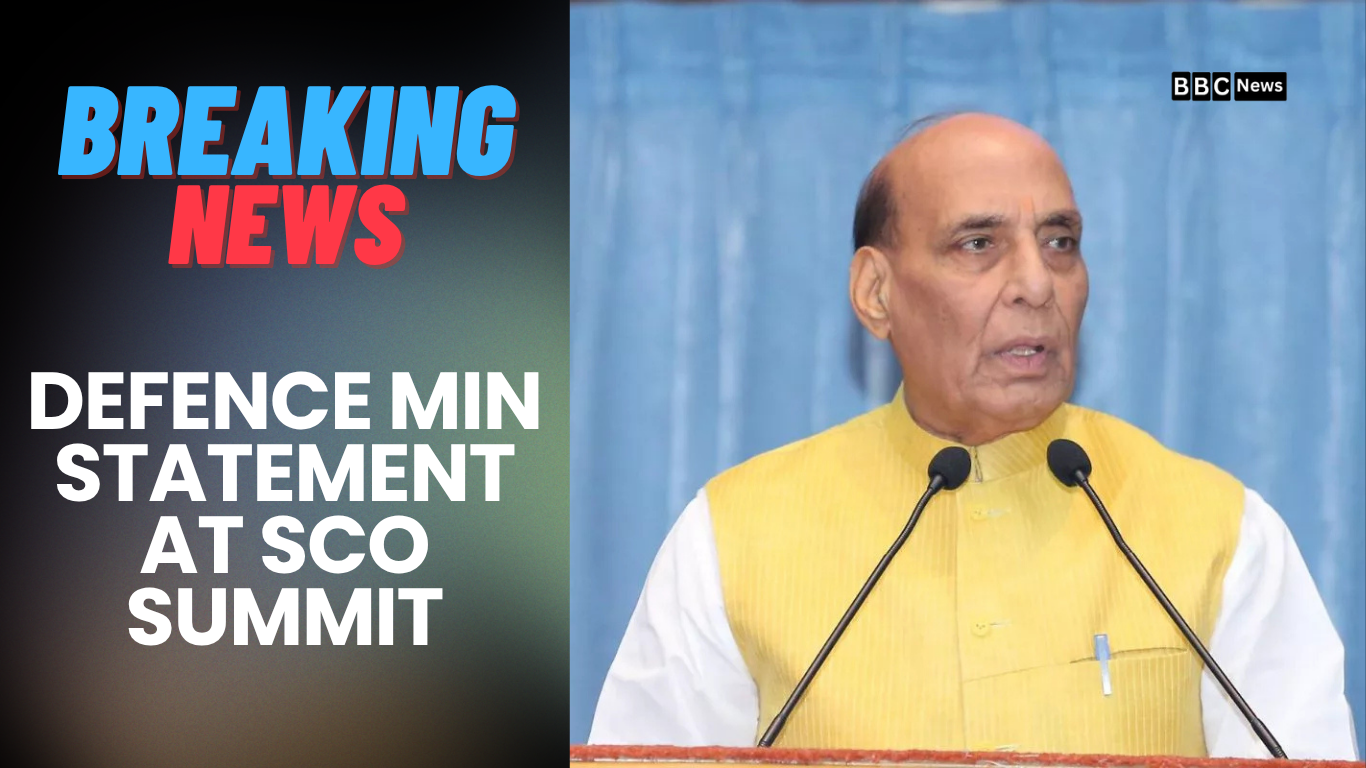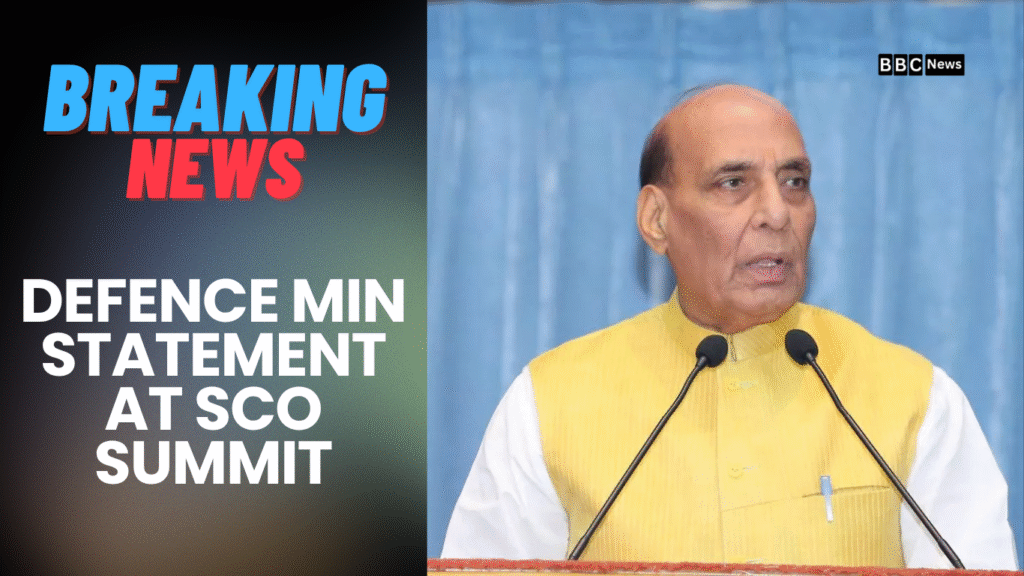
For the first time since the Pahalgam terror attack, India’s Defence Minister Rajnath Singh and Pakistan’s Defence Minister Khawaja Asif were seen on the same stage — but no talks or greetings were exchanged between the two during the Shanghai Cooperation Organisation (SCO) summit held in Qingdao, China.
No Engagement Between Indian and Pakistani Defence Ministers
Both leaders entered the hall separately and took part in the group photo session with other SCO member countries. Despite standing on the same stage, there was no formal interaction, handshake, or eye contact between them. This clear diplomatic distance underscores the strained ties between the two nations following the terror attack in Pahalgam, Jammu and Kashmir.
Pakistan’s Minister Appeared Isolated
Khawaja Asif was seen standing alone with his delegation throughout the event, not engaging with any other leaders. In contrast, Rajnath Singh was welcomed by China’s Defence Minister Dong Jun, and also held bilateral meetings with Russia’s Defence Minister Andrey Belousov and Belarus’ Viktor Khrenin, focusing on strengthening defence cooperation.
No Planned Meeting Amid High Tensions
There was no pre-scheduled meeting between Singh and Asif, and the tension between the two nations was palpable, reportedly due to the Indian military response under Operation Sindoor following the Pahalgam attack. India has suspended diplomatic engagement with Pakistan, including freezing the decades-old Indus Water Treaty, due to the ongoing hostilities.
Defence Ministers Rajnath Singh’s Strong Remarks on Terrorism
During the summit, Rajnath Singh launched a strong verbal attack on Pakistan-sponsored terrorism, directly blaming Lashkar-e-Taiba and The Resistance Front (TRF) for the Pahalgam incident. He hailed Operation Sindoor as a successful counter-terror operation and warned of similar decisive actions in the future.
SCO Joint Statement Blocked Over Pahalgam and Balochistan
India refused to sign the SCO joint draft as it attempted to include references to Balochistan — a move pushed by Pakistan, allegedly to shift blame for internal unrest onto “external forces.” At the same time, China and Pakistan opposed India’s proposal to include a reference to the Pahalgam attack in the joint declaration. As a result, no consensus statement was issued post-meeting.
India’s firm position reflected its zero-tolerance stance on terrorism and unwillingness to allow any dilution in global anti-terror efforts, especially through international platforms like SCO.



